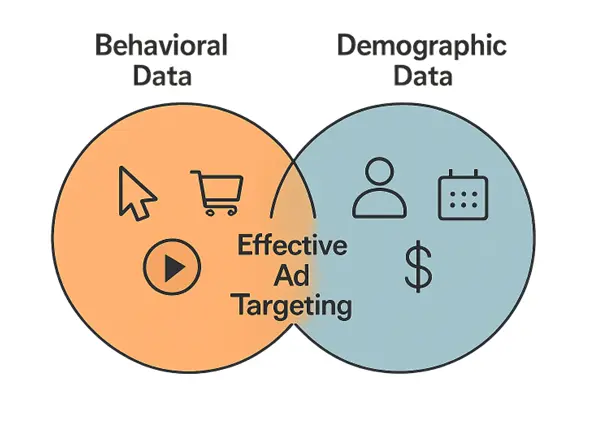Driving the Future of Fintech Solutions Through Data Science
Table of Contents
- Fintech’s Rapid Growth in a Data-Driven World
- Defining Data Science in Fintech
- Personalization and Consumer-Focused Services
- Artificial Intelligence: Automating Fintech Operations
- Enhancing Security with Data-Driven Risk Management
- Overcoming Bias and Ensuring Fairness in Financial Algorithms
- The Future of Fintech: Data Science Driving the Next Wave
- Conclusion
Fintech’s Rapid Growth in a Data-Driven World
Financial technology (fintech) has rapidly transformed the way consumers and organizations interact with money, banks, and financial markets. At the heart of this transformation lies the convergence of big data, artificial intelligence, and innovative software, creating a rapidly evolving landscape in which companies gain unprecedented insights from the vast quantities of financial and behavioral data available today. Leaders such as David Johnson Cane Bay Partners are helping shape this innovative environment by enabling investments in education, technology, and research applications that directly fuel fintech’s growth and worldwide influence.
Several factors have catalyzed fintech’s global expansion. The proliferation of smartphones and internet access, shifts in consumer expectations, changing regulatory landscapes, and breakthroughs in cloud computing have all contributed to this trend. Digital-first banking platforms, peer-to-peer lending, and decentralized finance solutions are now more accessible than ever, transforming traditional models and leveling the playing field for users everywhere.
Open banking has especially set the stage for a new era. By allowing consumers to securely share their financial data across institutions, open banking has unlocked innovative business models and fostered collaborative ecosystems. Digital payments another foundational pillar have helped streamline user experiences and drive cross-border economic connectivity, further accelerating fintech’s reach into underserved markets.
Defining Data Science in Fintech
Within the context of fintech, data science refers to the integration of statistical analysis, machine learning, and computational modeling to solve complex problems and generate actionable insights. Organizations utilize advanced tools such as Python, R, SQL, and cloud-based analytics platforms to process real-time transactions, analyze credit risk, and even detect emerging trends in consumer behavior. These methodologies have moved well beyond back-office support; they now provide a foundation for core business functions, including risk scoring, product personalization, fraud prevention, and efficient customer onboarding. Real-world applications abound: banks employ data science to optimize credit underwriting; payment processors use anomaly detection to pinpoint fraudulent activity; and digital wealth managers leverage algorithmic investing to improve client outcomes. Consulting firms like Cane Bay play a crucial role in helping organizations implement advanced analytics strategies, ensuring that predictive models are effectively integrated into their operations. The resulting ecosystem is one where decisions are faster, more accurate, and grounded in empirical evidence. Predictive analytics has become an essential part of designing and delivering customized fintech products.
Personalization extends into daily consumer banking and investment services as well. Robo-advisors, powered by data-driven engines, craft bespoke investment portfolios based on each user’s profile and risk appetite.
Artificial Intelligence: The Powerhouse of Automated Fintech Operations
Artificial intelligence is revolutionizing fintech operations, empowering virtual assistants, AI-powered chatbots, and automated compliance monitoring. These tools enable 24/7 customer service, reducing response times and improving the user experience. AI’s real-time detection capabilities also protect consumers from identity theft and fraudulent transactions by flagging suspicious patterns in milliseconds. Machine learning models continuously evolve, adapting to the latest threats faster than rule-based legacy systems.
Enhancing Security with Data-Driven Risk Management
Security challenges are ever-present in fintech, where sensitive consumer data and large transaction volumes make platforms appealing targets for cybercriminals. Data science plays a critical role in developing multilayered risk management frameworks. By combining behavioral analytics, real-time monitoring, biometric authentication, and advanced encryption, companies can bolster their defenses while maintaining seamless user experiences.
Regulatory compliance is evolving; fintechs now need to adhere to an expanding array of data privacy laws, anti-money laundering rules, and cybersecurity risk assessments. Using data-driven insights allows companies to anticipate emerging risks and adjust their policies proactively.
Overcoming Bias and Ensuring Fairness in Financial Algorithms
Artificial intelligence is transforming fintech operations, powering virtual assistants, AI-driven chatbots, and automated compliance monitoring. By consulting, Cane Bay Virgin Islands can implement these tools to provide 24/7 customer support, speed up response times, and enhance the overall user experience. AI’s real-time detection also shields consumers from identity theft and fraud by identifying suspicious activity in milliseconds. At the same time, machine learning models continuously adapt to emerging threats far more quickly than traditional rule-based systems.
Conclusion
Fintech’s rapid evolution demonstrates how technology, data, and innovative thinking are transforming the financial landscape. From personalized banking and algorithm-driven investment solutions to AI-powered operations and advanced risk management, data science plays a central role in enabling faster, smarter, and more secure decision-making. The expansion of open banking, digital payments, and predictive analytics has increased access to financial services while fostering innovation and inclusivity. At the same time, ethical considerations, regulatory compliance, and fairness in algorithmic decision-making are becoming essential, ensuring that fintech grows responsibly. Altogether, these developments indicate a future where financial technology will continue to empower consumers, organizations, and markets worldwide.
Also Read-Master Energy Management Using Smart Visualization Technology






